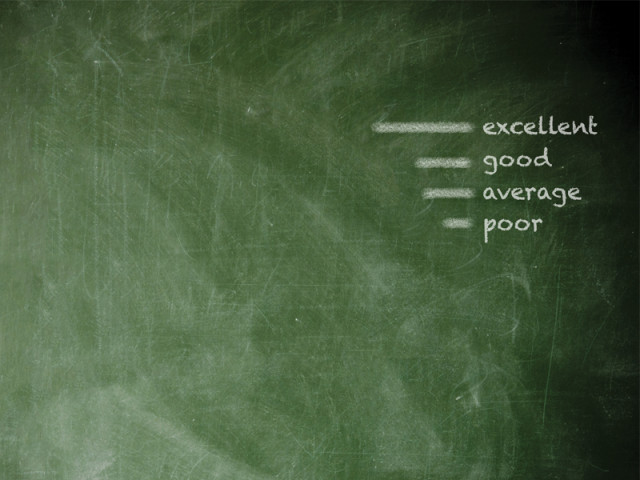For 2nd year in row: Pakistan’s economy will slow down to 3.4%, says ADB
Outlook 2014 urges Islamabad to implement structural reforms in energy and taxation sectors.

Outlook-2014 states that various macroeconomic and security challenges continue to weigh on the economy, which need to be addressed to continue and sustain the current momentum. DESIGN: ESSA MALIK
If government officials are to be believed, Pakistan’s economic indicators are positive. But the forecasts of global lenders are not promising. Pakistan’s economy will slow down for a second consecutive year to 3.4%, according to the latest Asian Development Outlook forecasts. It has urged Islamabad to implement the unfinished agenda of structural reforms in energy and taxation sectors.
Unveiling Outlook 2014, the flagship report of the Asian Development Bank, ADB’s chief in Pakistan Werner Liepach said that a slowing growth rate will reduce the fiscal space needed to increase public spending on education and health sectors.
Currently, Pakistan spends less than 2% of its national output on education and just 0.7% on healthcare, Liepach said, adding that bulging public debts will also affect spending on healthcare and education.
Continued fiscal consolidation will keep the growth rate on the lower side, he added. “It [2014] is a difficult year because of fiscal adjustments.”
For the current financial year the government has set a 4.4% growth target while it claims the national economy grew by a ‘surprising’ 5% in the first quarter of the current fiscal. But the ADB says the growth rate will moderate to 3.4%, which is slightly above an IMF projection but far lower than the official target.

While the US and India are going to pick up, Pakistan is a bit stagnant and will grow by 3.4% in the current fiscal, said Liepach. Oil prices will relatively remain stable and the agriculture prices will also remain flat, he added. “The risk to uptick is that if China slows, Asia slows.”
Liepach said Pakistan’s economy was showing signs of recovery but “for the ADB, recovery means that a declining trend in economic indicators has been reversed, though a lot more needs to be done”. He said there was still a big unfinished agenda of structural reforms in the areas of energy, taxation and state-owned enterprises.
The ADB has a different view on the pace of privatisation as the money earned may not come as quick as expected, said Liepach. While the government remains committed to energy sector reforms, these need to be comprehensive and should expand to administrative measures, he added while stressing on the appointment of permanent heads of energy sector companies.
“Actual actions have either not been taken yet or have to show results,” he said. “What Pakistan is going to achieve this and next fiscal is not enough to get this country out of poverty and put it on the path to development,” he added.
Outlook-2014 states that various macroeconomic and security challenges continue to weigh on the economy, which need to be addressed to continue and sustain the current momentum.
Farzana Noshab, senior economic officer at ADB’s country office, said the budget deficit is expected to remain in line with the IMF-agreed annual target of 5.8% of GDP. But she cautioned that a resurge of circular debt and any delay in projected foreign flows could pose a risk to the target.
She said the recent improvements in foreign exchange reserves are encouraging but potential risks to external sector come from a delay in the expected inflows in the second half of the fiscal year.
Noshab said a reliable supply to the industrial sector led to 6.8% growth in large scale manufacturing in the first half of the fiscal – but within LSM, the textile sector grew below 2% in that period.
She said the industrial growth will drive growth in retail and transport sectors but the agriculture sector output will remain modest this year. The external sector showed positive signs but the current account deficit will remain 1.4% of GDP, she added.
Liepach said the bilateral grant from Saudi Arabia was a surprise and a windfall as well. Noshab was of the view that the State Bank of Pakistan did not have the luxury to intervene in foreign exchange market due to a low level of official forex reserves.
Published in The Express Tribune, April 2nd, 2014.



















COMMENTS
Comments are moderated and generally will be posted if they are on-topic and not abusive.
For more information, please see our Comments FAQ